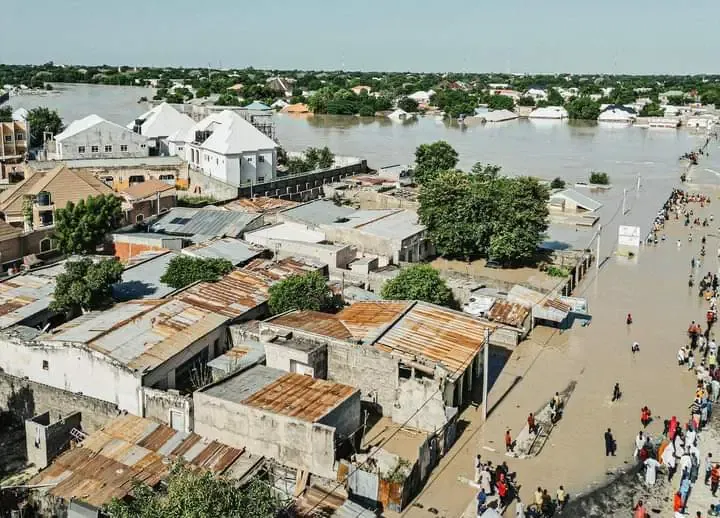In the past three months, Nigeria has witnessed a devastating surge in flooding, leading to the tragic drowning of at least 314 individuals. The northern regions of the country account for approximately 90 percent of these casualties, highlighting a significant shift in the expected rainfall patterns traditionally seen from April to September.
Historically, this period included a brief dry spell known as the ‘August Break.’ However, in 2024, torrential rains have persisted, leading to widespread flooding across 31 states, including 18 of the 19 northern states and the Federal Capital Territory, Abuja. Many northern cities remain submerged just days before the end of September, a stark contrast to the typical onset of the dry season.
Rising Waters and Growing Casualties
The floods have been exacerbated by the release of water from the Lagdo Dam by Cameroonian authorities, further threatening states along the banks of the River Niger and River Benue. The most severely affected areas include Kano, Yobe, and Borno, with Kano reporting 49 fatalities, Yobe 43, and Borno 37. The devastation extends to Jigawa, Bauchi, and Sokoto, among others.
As of September 18, reports from the UN Office for the Coordination of Humanitarian Affairs (OCHA) indicated that 285 individuals had drowned and over 2,500 were injured. The flooding has impacted 31 states and 185 local government areas, displacing more than 641,000 people and damaging 98,242 homes, as well as destroying over 127,000 hectares of farmland.
Ongoing Humanitarian Response
In response to the crisis, the Nigerian government, through the National Emergency Management Agency (NEMA) and state emergency agencies, has initiated relief efforts in the most affected states. However, the situation remains dire, especially in areas like Borno and Bauchi, where significant numbers of individuals are struggling to cope with the aftermath of the floods.
Katsina State alone reported 15 fatalities and the displacement of over 3,000 individuals between early August and early September, alongside injuries to 21,481 others.
Climate Change: A Root Cause
Experts are attributing the unprecedented flooding in the north to climate change and changes in rainfall patterns. Professor Chidi Nzeadibe from the University of Nigeria, Nsukka, noted that flooding in cities like Maiduguri has been aggravated by dam failures and unusual climate conditions. He explained, “The case of flooding in Maiduguri is as a result of the failure of a dam. This flooding covered about 70 percent of Maiduguri, submerging and displacing communities and causing infrastructure damage.”
Professor Ifeanyi Enete from Nnamdi Azikiwe University echoed these sentiments, stating that climate change has altered the onset and intensity of the rainy season, resulting in heavy rains that overwhelm the soil’s absorption capacity. “The duration of this intense rainfall is too big for soil to absorb, leading to flooding,” he explained.





